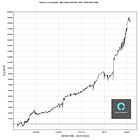What is a system?
A trading system is a set of rules that clearly define
unequivocal and universal way of operating one or more financial instruments with the purpose of obtaining benefits. Experts say that a system only exists if it is in writing, so there should not be any type of ambiguity in the investment methodology that is intended to be applied.
The rules must be consistent with each other and cannot contradict each other.
Operating a system is not easy and does not imply success per se, however, its advantages can make it the most advisable option to achieve profitability on a regular basis for the vast majority of investors.
There is something very simple but very valuable in a trading system, you know what you are trading.
Systems requirements
Obviously the first requirement is that a system be profitable in Historical facts. But that does not guarantee that it will be profitable in the future, and here we have a common error of reasoning which is the following:
A profitable system must have positive backtesting (provide simulation profits), but positive backtesting does not imply that we have a profitable system.
The scientific method helps us deal with this common error of reasoning which is to think that with one or several profitable simulations we are facing a system with predictive or winning power. The scientific method tells us that we must put the question the other way around and assume that our system does not generate benefits. If we are able to falsify this statement with a certain degree of confidence then we will have a profitable system.
To do this, it is assumed that the system has a zero average gain and if the tests indicate that this is not true, that at a certain level of confidence (commonly 95%) the average gain is greater than zero, then we can affirm mathematically (statistics). ) that we have a winning system.
This requirement of having a statistically reliable system is very relevant, since a trader who has to choose between a system with a small but statistically reliable average profit, and a system with a large but unreliable profit will always choose the first because he only has to increase the size of the position in the market to achieve a system with high gain and very reliable. Systems that are operated with real money must have an average profit greater than zero with at least 95% confidence.
Another important requirement for systems is that they consist of a few simple, well-defined rules. If this were not the case, it would be very difficult to monitor its correct operation.
And answer the most important question, why does it work?
What is a good Trading System?
.The following is what I consider to be the characteristics of a system worth operating with real money:
• It has less than 4 or 5 parameters (it is simple)
• It is evaluated on sufficient data. At least 2 years if intraday and at least 10 years if it is daily. As minimum we will look for about 200 operations.
• Generates profits year after year, even if they are limited or It is robust; By slightly varying its parameters, your results vary slightly; that is, it is not built on a peak of revenue.
• Works on most instruments with features similar (another form of robustness).
• Sharpe ratio >= 1 (lower does not mean it is a bad system but we will have to continue investigating)
• Recovery Factor >= 6
• MaxxD < 30%
• Profit Factor >= 1.8
There are other ratios that are equally or more important, but these can serve to characterize a good trading system and are simple and easy to understand. You shouldn't complicate things to appear smarter.
The next article will be about types of trading systems. I will also tell you about the most important ratios or metrics of a system.
Every Saturday I publish a trading system, every week its price goes up $10 and when the month changes you will no longer be able to get them.
Subscribe now and lock your price:
Do you need tradsing systems? Shoot
….







